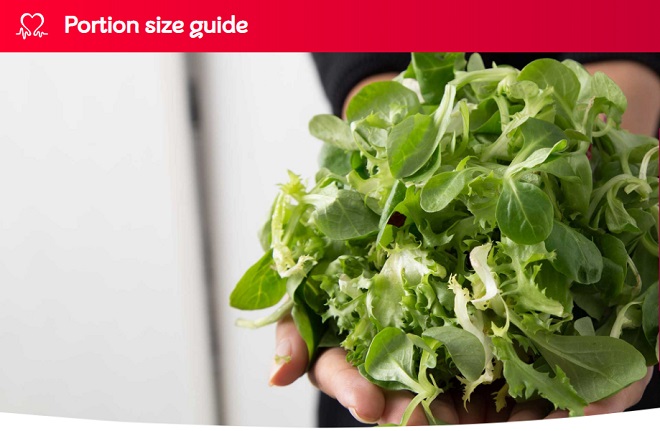
There are many benefits to exercise. It can improve mood and sexual life and increase life expectancy. Regular exercise improves physical ability, prevents excessive weight gain, and keeps the weight off. Exercise also helps to burn calories which can help you keep your weight down. If you are looking for a reason to exercise, this is the best option. Let's take a look at some of the most notable ones.
Exercise can increase endorphins which help reduce pain and instill a sense of well being. Exercise can make you feel happier. It also increases your energy levels, mood, and self-esteem. It can also make you look and feel better. The long-term effects of exercise aren't quantifiable. Finding an activity that you are passionate about is crucial. If you don’t have enough time to join the gym, start small and then increase your time.

Regular exercise is linked to a lower risk of stroke and heart attack, according to studies. It can even prevent some types of cancer. It can also increase life expectancy, allowing you to be more productive and live longer. Exercise can make your life easier and more enjoyable by helping you reduce stress and improving your sexual and mental health. This activity will make you feel more energetic and positive.
Exercise also relieves anxiety and depression. Although it may not be the best choice for everyone. Exercise will make you feel better and help you live longer. Many exercises release endorphins that create a sense o well-being. These chemicals are essential for the body to function well, so it is important to have enough. This will not only make you feel good, but it'll also improve your sleep quality.
In addition to physical benefits, exercise can improve mental health. It has been proven that exercise can improve mood. It can even make you feel happier and energized, especially if depression is a problem. Regular exercise can help you live longer, feel better, and live longer. A medical professional may be able to give you more reasons to exercise. When it comes to your health, exercise will help you live a longer and healthier life.

Exercising has many other benefits than its physical effects. Exercise can reduce your risk of developing diabetes or metabolic syndrome and improve your memory. You can also increase your mood and decrease your risk of developing depression. People suffering from depression worry that they will lose their memory. Regular exercise can help them feel better. It will improve their mood, and reduce their anxiety. Get moving! This will improve your mood and decrease your chances of getting these conditions.
FAQ
What if I exercise and drink alcohol?
Yes. Alcohol increases energy expenditure, speeds up recovery times, and reduces soreness.
Additionally, alcohol can increase insulin sensitivity and make it easier to absorb glucose.
However, alcohol can cause dehydration, which can slow down your metabolism. You may also experience a reduction in testosterone production which can lead to decreased muscle-building potential.
These are the reasons women should not drink alcohol before going to work out. Women who drink heavily should wait at the least 24 hours before exercising.
It is important that women who are nursing avoid alcohol.
Men should limit their intake to one drink per day.
What is the best 7-day workout program?
Three days per week should be spent on cardiovascular training, including running, biking, swimming, and two strength exercises using free weights, weight machine, as well as one flexibility/core exercise such as yoga, Pilates. It is important to complete each activity at least once weekly. Each session should last no more than 45 minutes.
Cardiovascular Exercise: Running, Biking, Swimming
The goal is to get in at least 60 minutes of cardio activities per week. Try to do 75 minutes per semaine for the best results. Cardio exercises can be used to increase blood flow, stimulate muscle growth, and improve blood circulation.
Strength Training
Cardio exercises target the heart, lungs and muscles. Strength training targets the muscles, tendons and bones. Strength training builds lean muscle mass, which helps burn calories even when resting.
Flexibility and Core Workouts
To strengthen your whole body, flexibility and core work outs are excellent ways to do so. Both yoga and Pilates are excellent options.
Are There Any Benefits to Yoga?
Yoga has been around since ancient times and has gained popularity recently. Yoga is now very fashionable among celebrities and everyday people who want to look and feel good.
Yoga is great because it strengthens your muscles as well as stretches them. Yoga can also help calm your mind and relax you.
Yoga is more focused on breathing than other forms of exercise.
For balance and flexibility, there are many poses you can do.
How To Lose Belly Fat Fast
There are many fast ways to lose belly fat. One option is to eat less calories and drink more water.
Another way is to increase your metabolism by participating in activities such as running and swimming.
Avoid sitting down if your goal is to lose belly fat quickly. Instead, stand up throughout the day. This will help you lose more calories.
If you are having trouble losing belly weight despite trying all of these methods, there is another way.
A belt is a device that allows you to do this. The belt fits around your waist and is tightened when you sit down.
This will make you feel uncomfortable and allow you to move about. This encourages you to burn calories and decrease your belly fat.
What's a good workout routine for daily?
Regular exercise is key for staying in shape. No matter what kind of exercise you do, as long you do it consistently. Consistency is the key. You must be consistent if you are to see results.
Start by doing small amounts of daily physical activity (like walking). Then gradually increase the time spent exercising until you spend 30 minutes a day working out. This could include running, cycling, swimming, weight training, yoga, or aerobics classes.
Try to make sure you exercise on all days of the week. Don't skip any sessions unless you have a valid reason for not attending.
Make sure to wear appropriate clothing and footwear for outdoor exercise. It is important to take into account the weather conditions, and how they may affect your ability to exercise safely.
Make sure that you drink plenty of water while you're exercising. Drinking alcohol during exercise can cause dehydration. Avoid caffeine-rich drinks like coffee, tea, and coca. They will not only give you more energy but also dehydrate you.
When you first start exercising, you might feel tired after completing your workouts. If you stick with your training program, you'll feel more awake and alert.
Statistics
- The PRS enabled risk stratification for overall prostate cancer and lethal disease with a four-fold difference between men in the highest and lowest quartiles (HR, 4.32; 95% confidence interval [CI], 3.16-5.89). (pubmed.ncbi.nlm.nih.gov)
- According to the American Heart Association, blood pressure should be checked at least once every two years, beginning at age 20. (my.clevelandclinic.org)
- Are You One of the 20% of Guys (mh.co.za)
- An estimated calorie range for moderately active adult males falls between 2,200 to 2,800 calories per day, depending on age. (eatright.org)
- Candidates and applicants must pass all four tests at 70% (minimum level) to graduate from Basic Deputy U.S. Marshal (BDUSM) Training. (usmarshals.gov)
External Links
How To
How do I lose weight while working out?
Exercise reduces calories by increasing metabolism, and oxygen consumption.
If you exercise with moderate intensity, you can safely lose weight.
To burn fat while exercising, follow these tips:
-
Do cardio exercises such as walking, swimming, jogging, cycling, running, or elliptical training.
-
Exercise for 30 minutes three times per week.
-
You can lose weight by adding strength training to the routine.
-
Avoid intense workouts. You can build muscle without having to lose muscle tissue.
-
When exercising, make sure to drink lots of water. Water flushes out toxins, and keeps your body properly hydrated.
-
After working out, drink low-fat protein shakes. Protein shakes are great for your muscles and energy.
-
Eat smaller meals throughout the day, so you don't feel hungry between meals.
-
Don't skip breakfast! Skipping breakfast can cause you to feel tired and sluggish.
-
Take care of your mental health. Stressful situations can slow your metabolism.
-
Keep a positive attitude. Studies show that people who believe they're overweight gain more weight than those who think they look pleasing.
-
Get enough rest. It is harder to lose fat if you don't get enough sleep.
-
Be active. Be sure to get up and move around every hour or two.
-
Maintain a healthy diet. Healthy eating will keep you fuller and more satisfied for longer.
-
Find ways to relax. A tense mind doesn't allow your body to release stress hormones that break down muscle tissue.
A balanced diet is one that includes all of the essential nutrients required for growth.
You should eat six small meals per day rather than three large ones. This gives your body time and energy to process the food.
Calcium is required to support strong bones. Calcium can also be found in milk products, yogurt, fortified Soy beverages, orange Juice, cereals and bread.
Calcium comes from leafy green vegetables, beans, tofu, nuts, seeds, and cheese.
Your body needs vitamin D to absorb calcium. It's found in fatty fish, egg yolk, and some fortified foods.
Vitamin E is vital for your skin's health. It can be found as a vegetable oil, wheat germ, peanuts or almonds.
Your body needs zinc to maintain normal immune function and heal wounds. Zinc can also be found in legumes, oysters, meats and whole grains.
Zinc deficiency could cause fatigue, nausea, vomiting, and depression.
Insulin resistance is caused by eating too much sugar, which can increase blood glucose levels. Insulin resistance leads directly to weight gain.
Insulin resistance is caused by high blood levels of free-radicals. Free radicals refer to molecules that contain unpaired electrons. They can damage cell membranes and other body parts.
Free radicals come mainly from food additives, pesticides, herbicides, preservatives, smoking, air pollution, radiation, chemicals in cosmetics, lotions, and household cleaning supplies.
Free radicals can lead to cancer and heart disease, diabetes mellitus, arthritis, asthma, and premature aging.
The best way to avoid free radicals is to eat a balanced diet high in antioxidants. Antioxidants protect against oxidative damage.
Vitamin C, beta carotene (found within citrus fruits, carrots, sweet potatoes and spinach), Vitamin E (found inside nuts, olive oils, avocados and eggs), and Vitamin C (found among mangoes.
Selenium, copper as well as manganese and zinc are some other antioxidant nutrients.
Selenium helps to protect cells against free radicals and oxidative stress. Selenium can be found in Brazil nuts and liver, kidneys, liver, kidneys, shrimp, cod, turkey and lamb as well as chicken.
Copper protects the eyes, brain, lungs, liver, and red blood cells. Copper can be found in shellfish and poultry as well as meat and organ meats.
Manganese is essential for bone structure. Manganese may be found in brown rice or spinach, bananas and prunes as well raisins, oatmeal and lentils.
Zinc is necessary for average growth, reproduction, and wound healing. Zn is present in lean cuts of meat and white fish, as well as eggs.